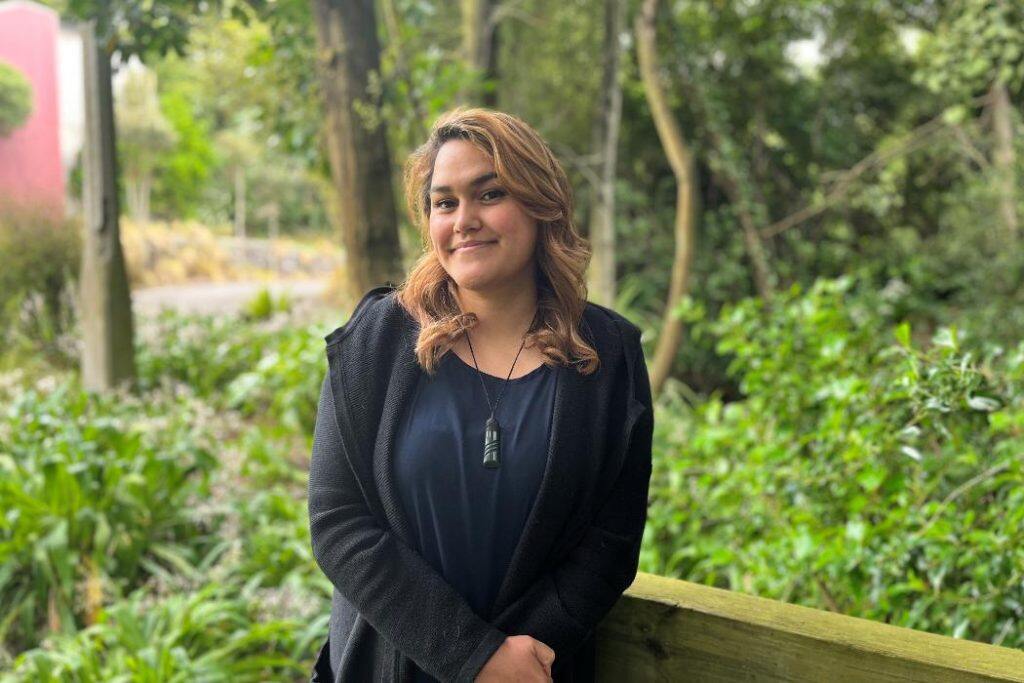Young parents can be as successful as older parents if they have supportive relationships and financial security, according to new University of Canterbury (UC) research.


Grace Hinepua Walker (Ngāruahine, Ngāti Kahungunu) recently completed her PhD in Psychology at UC using data from the Christchurch Health and Development Study (CHDS) as the basis for her thesis.
She says previous research has predominantly looked at outcomes for younger parents and her project is one of the first to compare outcomes across the life course for people who have children when they are young (age 16-26) and those who have them when they are older (age 27-40).
She used the data to assess differences between genders and between Māori and non-Māori to explore the role of cultural affiliation in parenthood.
Grace’s PhD thesis, Transitions to Parenthood and Life Course Trajectories: Variations between Mothers and Fathers as well as Māori and non-Māori, was supported by a University of Canterbury Ngāi Tahu Research Centre Doctoral Scholarship awarded in 2017.
“My research was focused on understanding life course pathways to identify potential areas of intervention to improve outcomes for all parents,” she says.
She found younger parents had worse outcomes than those who had children when they were older, but these differences were mediated by socioeconomic position, social support, steady relationships and education level.
Overall, most disadvantages experienced by young parents were due to disadvantages experienced during childhood and adolescence rather than the timing of parenthood. Older parents were more likely to be financially secure.
However, one interesting finding was that having a steady long-term relationship and employment was associated with both younger and older parenthood.
“The biggest contributors to wellbeing for parents were relationship stability, financial security and social support and those are the areas where interventions should be targeted to support younger parents,” Grace says.
She has a post-doctoral fellowship with the University of Otago’s Christchurch Health and Development Study where she is the kaitiaki of the Māori cohort. Her future research will focus on health equity across the life course, with a particular focus on the Māori cohort.
She has also started her own company which allows her to work as an independent research consultant and data scientist with the goal of carrying out research that will help improve outcomes and wellbeing among Māori.
Grace also works on research projects for the University of Canterbury Ngāi Tahu Centre, an organisation that she says has helped her feel like Ōtautahi Christchurch is home. “They’ve provided a lot of emotional, social and cultural support at a time when I was learning a lot about Te Ao Māori and building my cultural confidence and capability as a researcher.”
Originally from Whanganui, the 29-year-old says she knew education would improve her outcomes as an adult and she is passionate about conducting meaningful research that builds up the future Māori workforce within Aotearoa.
“Completing my education to be called ‘Dr’ was not an easy path to take, but as a Māori researcher, academic and data scientist I know I am contributing to new research and approaches that are useful for Māori.”
Grace says statistics are often used without consideration of the historical context or implications of policy which has led to Māori being stigmatised or marginalised and she is passionate about using statistics to be beneficial to communities and groups she works with.
“I like my mixed methods research because numbers are good to quantify a need or estimate an event occurring, but they mean very little on their own. The qualitative aspect of research gives those numbers story and meaning.”
Grace’s PhD was supervised by University of Canterbury Professor Janet Carter, Acting Executive Dean of Science.






































